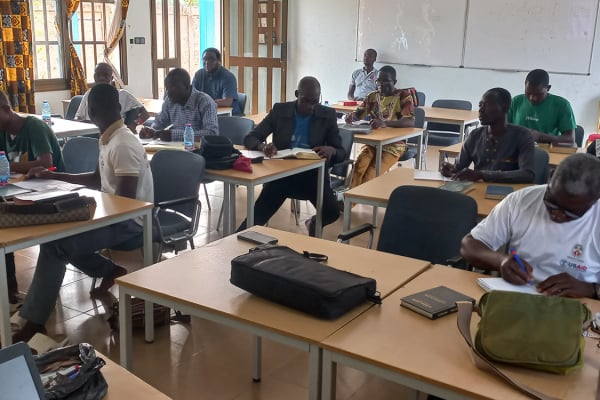Work, Pray, Love
Nearly a decade ago, when I first set out to explore Business as Mission (BAM), someone wisely encouraged me to base my ideas about BAM in Scriptural foundations, or otherwise forget it.
As I studied and searched, I found that Scripture and biblical history both support a robust theology of work. The Great Commandment (love God and your neighbor) and the Great Commission (make disciples of all nations) both reflect the purpose of humanity.
In short, we can sum up the Bible’s message in three simple phrases that apply to everyone.
1. Work is good. Known as the Creation Mandate, this theological principle says that mankind is to be creative, just as the Creator-God was creative. We are to imitate God in our work — and everyone works! Work started in the Garden of Eden. How can we tell? The Bible uses working words like till, care for, exercise stewardship, subdue, and work. These words continue throughout the Old Testament.
When King Solomon finished building the temple, he prayed and acknowledged the purpose of the work: “…so that all the peoples of the earth may know that the Lord is God” (1 Kings 8:60). A created object of work — the temple — declared the glory of God.
Two authors phrase this concept well. Writer GE Veith states, “The priesthood of believers did not make everyone into church workers, rather it turned every kind of work into a sacred calling.” Christian CEO Michael Cardone states, “God did not call me to be a minister or a missionary. He called me to be businessman — and I see no difference.”
2. Love everyone. The Great Commandment is stated by Jesus in Matthew 22:39: “…You shall love your neighbor as yourself.” That love takes place in the everyday marketplaces of life — in offices, schools, factories, stores, and homes.
In a world where acute poverty, unemployment, injustice, and abuse of power run rampant, love can look like job creation and justice. Since God gives humankind “the power to make wealth” (Deuteronomy 8:18), we can love our neighbors by empowering them to live a better life, while doing it in the name of Jesus.
3. Make disciples. The Great Commission was not given to a select few. Every Christian is to “make disciples of all nations.” Where is one of the best places to do that? Interaction and relationship have great potential in the workplace.
Disciple-making is the work of the everyday Christian who works every day. Kirk, the manager of a factory in East Asia, tells visitors, “Every day on the factory floor is an opportunity for discipleship.”
Martin Luther came to this same conclusion when he stated:
Monastic vows rest on the false assumption that there is a special calling, a vocation, to which superior Christians are invited to observe the counsels of perfection while ordinary Christians fulfill only the commands; but there is no special religious vocation since the call of God comes to each in the common task.
The apostle Paul, too, understood this concept, as he simultaneously worked for a living and shared the good news of Jesus. He lived out the gospel as he preached it. So, too, did the persecuted Christians of Acts 8, who departed Jerusalem and migrated to various Mediterranean lands, sharing Jesus while they did so. Those who arrived in Thessalonica (about 1,000 miles from Jerusalem) came to be known as those who “turned the world upside down” (Acts 17:6, King James Version).
We work. We love. We disciple. All of us — all the time!
.png)

 By Larry Sharp
By Larry Sharp











